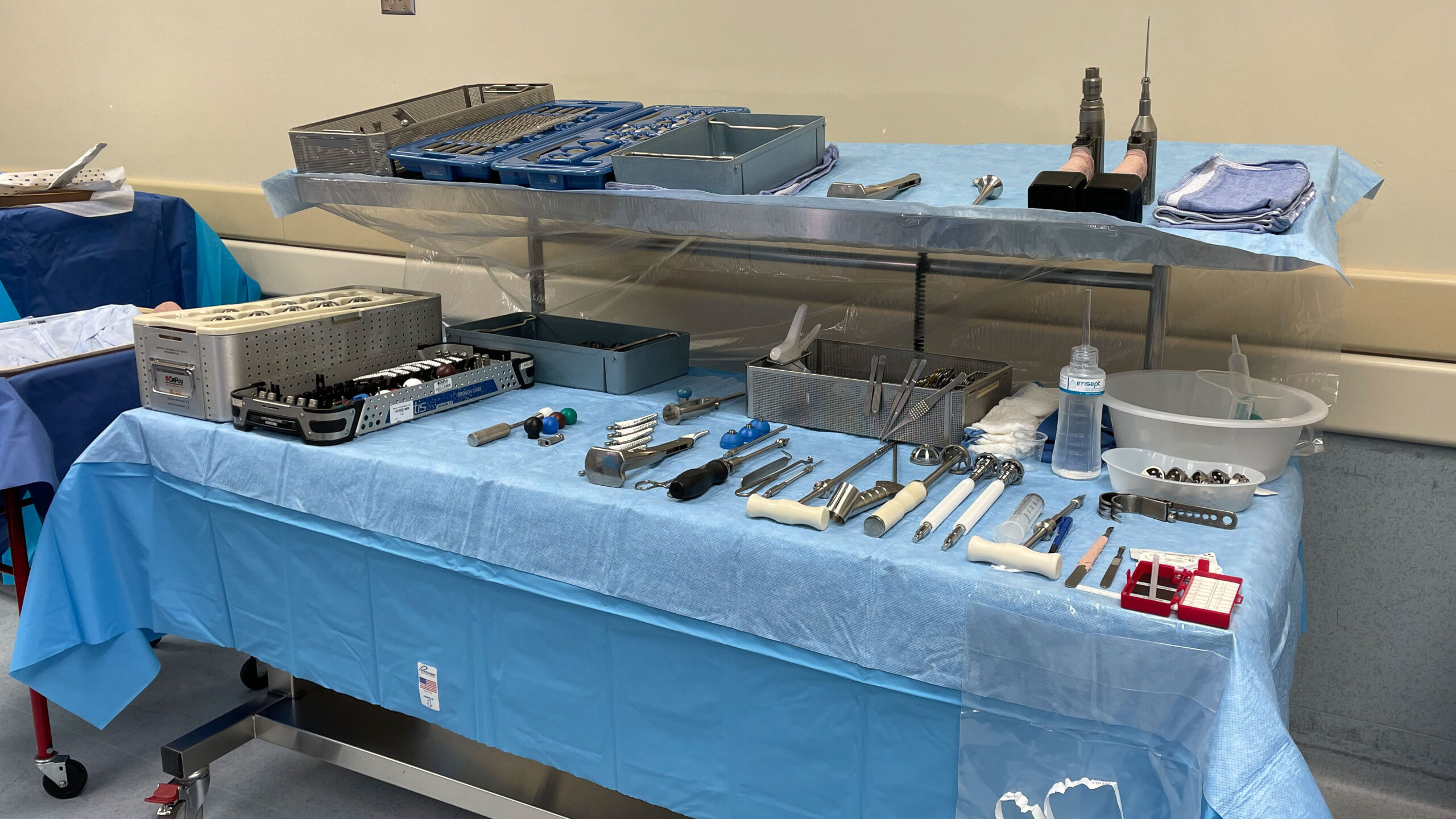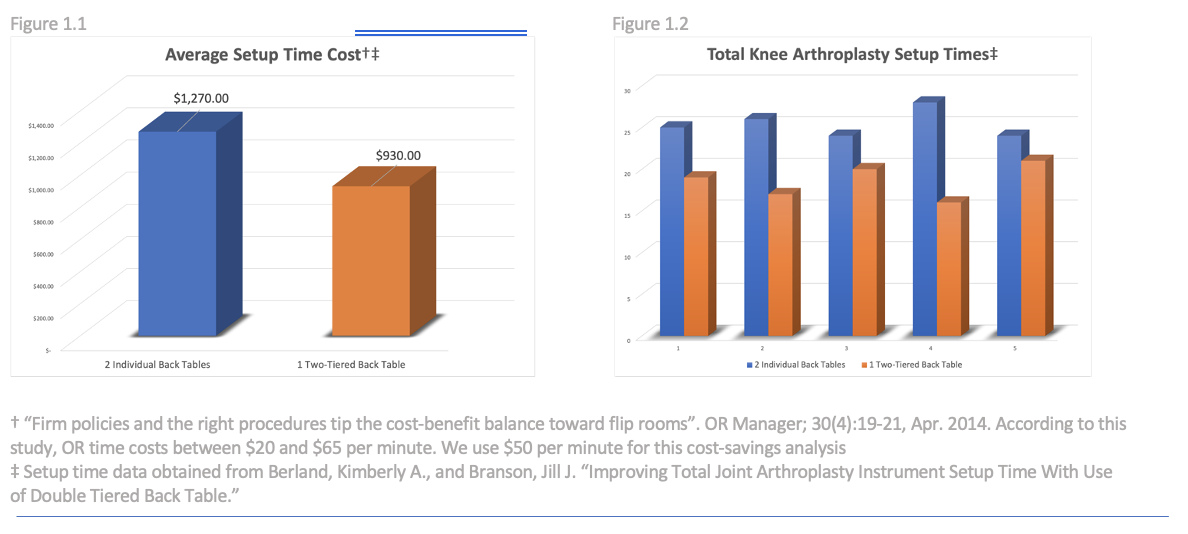
The United States is renowned for its substantial healthcare expenditures, surpassing all other nations. However, there is mounting pressure on healthcare institutions to curtail costs across the board. Hospitals are taking a hard look at lessening expenses while maintaining the quality of care by looking for ways to avoid and reduce unplanned costs. One key area under examination is the operating room (OR), as it generates both significant costs and revenue.
Research has revealed that approximately 15% of OR time is squandered, primarily due to non-operative processes such as equipment sterilization and transportation delays. These inefficiencies present an opportunity for hospitals to implement standardized procedures, optimize workflow layouts, and enhance OR turnover times in order to mitigate unexpected costs and time wastage.
We offer an innovative solution designed to assist hospitals in minimizing OR expenses: the Pedigo Space Station, an adjustable two-tier surgical back table, accompanied by a custom-fitted drape. This two-tier instrument table has already found utility in over 10,000 ORs across various surgical cases, with considerable benefits observed in extensive procedures like orthopedics and neurosurgery. Its implementation yields the following cost-reducing advantages:
In a study by Berland, Kimberly A and Branson, Jill J, they compared the setup times of one two-tier back table with two standard back tables. The data collected demonstrated that the Space Station decreased setup time by over 30%. These 6 minutes can equate to around $340 in savings per use (Figure 1.1 and Figure 1.2).

In substantial cases, instrument cases can weigh up to 40 pounds. The Space Station minimizes repetitive staff movement associated with lifting heavy trays by allowing them to place such trays on the main table surface (which can hold up to 230 pounds) while laying out other instruments on the top tier. This, in turn, increases instrument visibility so that the staff does not have to lift trays looking for specific instruments and move from one table to another.
By employing our custom fit drape for the Space Station back table, hospitals can standardize their draping technique and eliminate the necessity for double draping. This is made possible through our heavy-duty, tear-resistant design of the three-layered drape. Additionally, the clear backing beneath the upper shelf permits adequate lighting, enhancing visibility on the main table surface.
With the Space Station, it is possible to achieve cost reductions of up to $340 per surgical case, enhance OR workflow turnover and setup efficiency, and minimize work-related injuries. Our two-tier surgical back table, in conjunction with our disposable table drape, functions as a comprehensive system that provides the same capabilities as two back tables with double draping, but with reduced setup time and numerous other benefits that mitigate unforeseen costs.
Contact your local Pedigo representative today about setting up a free Space Station demo!
Written by Kendall Pedigo, Social Media Manager
References
Uddin, Majbah et al. “Assessing operating room turnover time via the use of mobile application.” mHealth vol. 4 12. 17 May. 2018, doi:10.21037/mhealth.2018.05.03
Childers CP, Maggard-Gibbons M. Understanding Costs of Care in the Operating Room. JAMA Surg. 2018;153(4):e176233. doi:10.1001/jamasurg.2017.6233
Schock, Gianna, and Beth Blickensderfer. “Operating Room Turnover Time: Definitions and Future Research Needs.” Proceedings of the Human Factors and Ergonomics Society 2019 Annual Meeting, 2019, https://journals.sagepub.com/doi/10.1177/1071181319631301
Stein, Chelsea. “How Can Hospitals Save Tens of Millions of Dollars Annually in Their Operating Rooms?” Eli Broad College of Business | Michigan State University, 17 Feb. 2020, https://broad.msu.edu/news/how-can-hospitals-save-tens-of-millions-of-dollars-annually-in-their-operating-rooms/
Copyright © 2026 Pedigo Products all rights reserved | Tel: 800.822.3501 | 4000 S.E. Columbia Way · Vancouver WA 98661 | Update cookies preferences